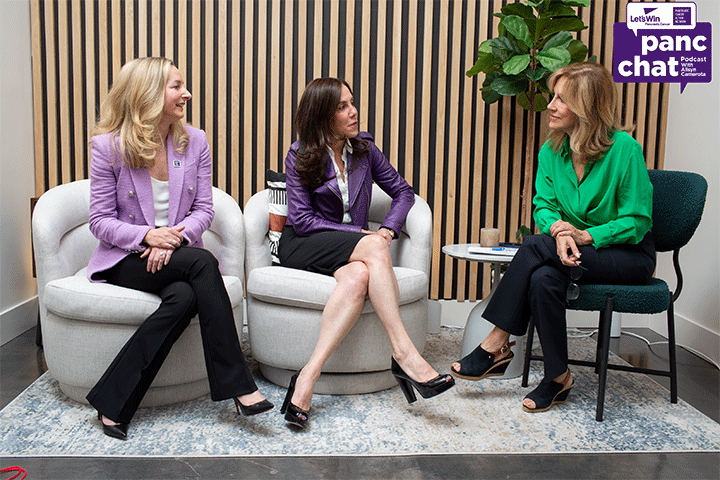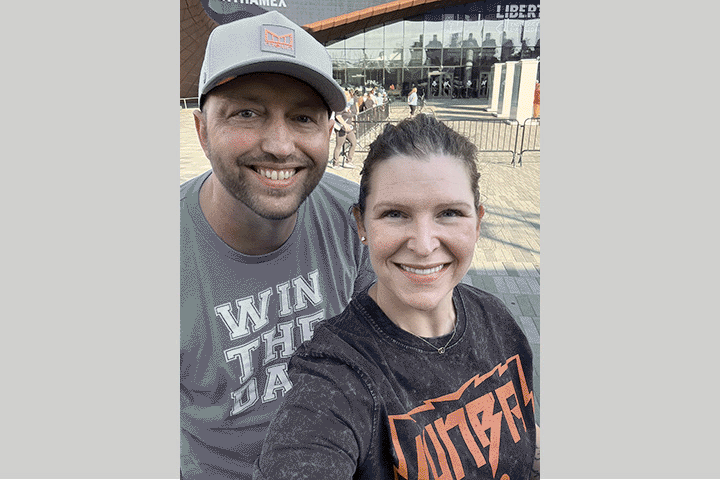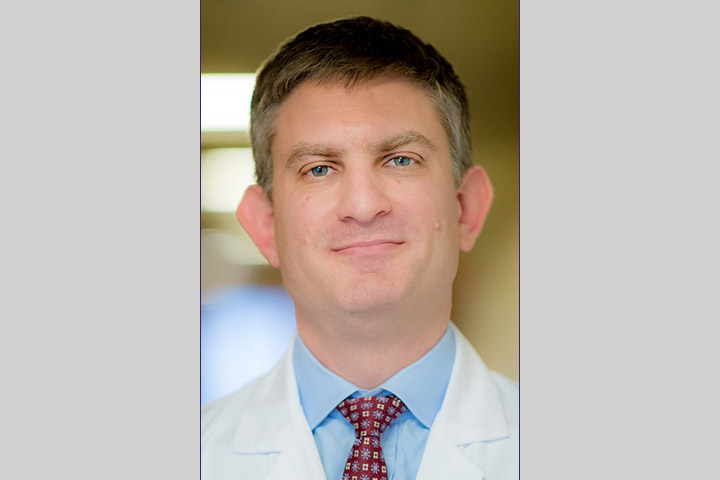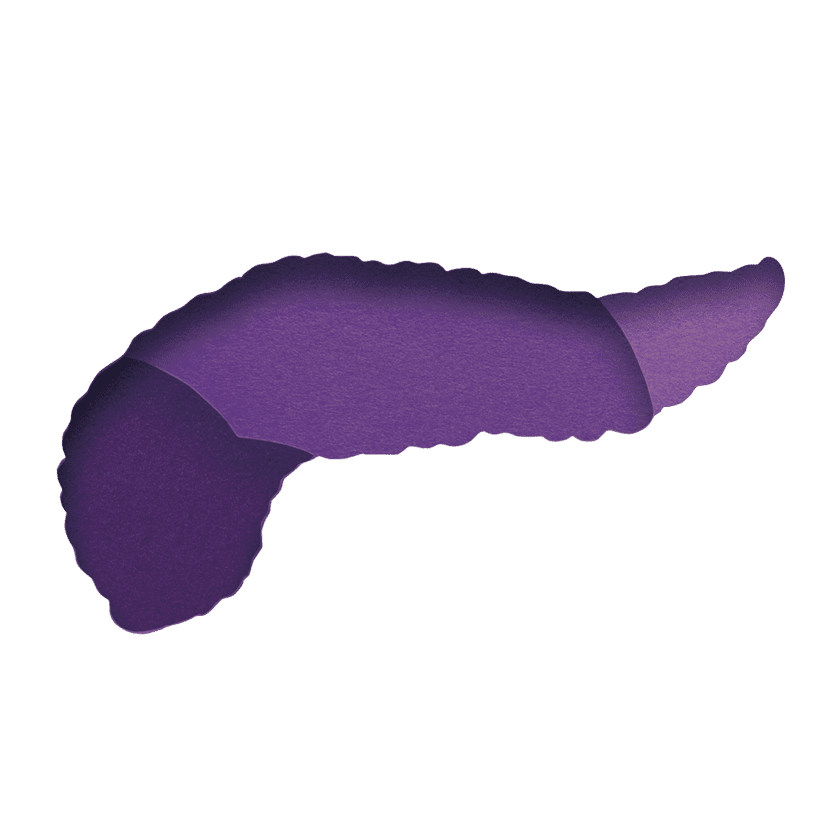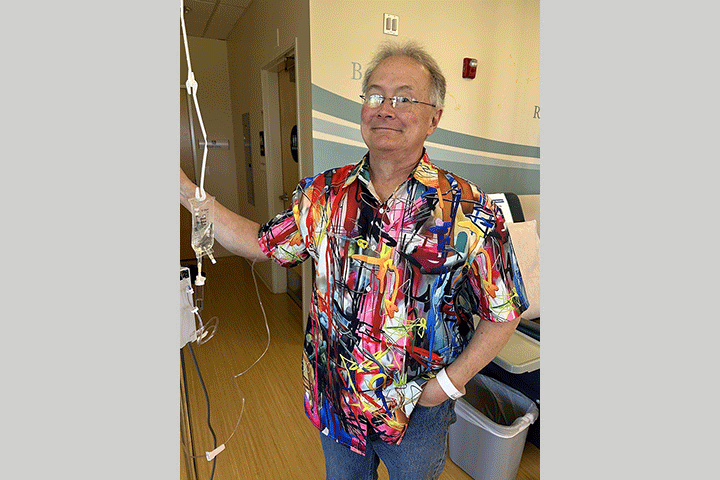Endurance, Resilience, and Tenacity
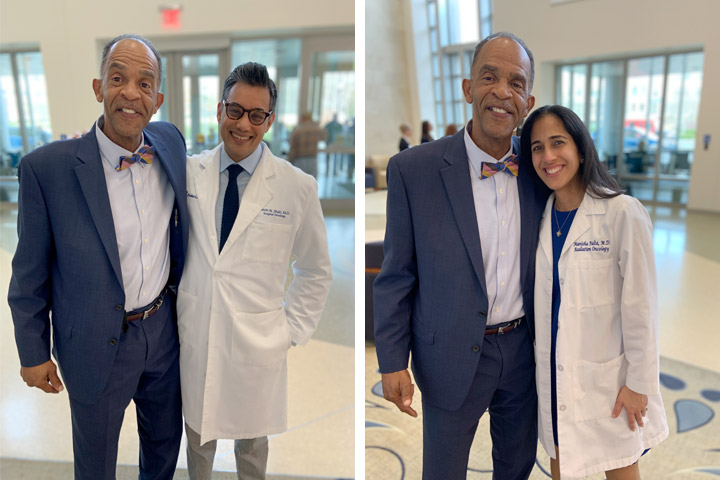
John Sanders and (left) Dr. Shah (right) Dr. Palta
- Getting a second opinion at Duke
- Twelve-hour Whipple surgery
- Chemo at a local facility
- Radiation back at Duke
Endurance, resilience, and tenacity. Those three words have echoed in my mind since the day I was diagnosed with pancreatic cancer in 2018.
I didn’t expect anything like this to happen to me. I was having a lot of ominous symptoms—rapid weight loss, abdominal pains, jaundice of the liver, yellow eyes, and diarrhea. I had just finished treatment for an ulcer but I didn’t feel any better. I knew something else was wrong. I immediately sought help.
After many tests (including a CT scan, MRI, ERCP, blood tests, and urine tests), I found out that my bile duct was blocked by my swollen pancreas. I was diagnosed with stage III pancreatic adenocarcinoma by a team of doctors in Augusta, Georgia, just over the border from my home in North Augusta, South Carolina. Their initial treatment plan didn’t feel right. So I sought a second opinion from the Duke Cancer Center in Durham, North Carolina. I felt good about them on the phone so I made plans to come as soon as possible. Surgical oncologist Dr. Kevin Shah and medical oncologist Dr. John Strickler assembled an aggressive plan that I felt better about.
Twelve-Hour Whipple Surgery
At the beginning of May, Dr. Shah performed a twelve-hour Whipple procedure to remove the cancerous mass on my pancreas. After that, I started chemotherapy and radiation. Because the Duke Cancer Center was a four-hour drive from my home in South Carolina, we put together a plan that could be administered by a local cancer center.
I underwent a full year of chemotherapy at the AO Multispecialty Clinic in Augusta, Georgia. My treatment included an aggressive dose of FOLFIRINOX prescribed by Dr. Strickler and Dr. Miriam Atkins. I had a few side effects, like numbness and tingling in my fingers and toes, loss of appetite, and overall weakness. But I endured them as best I could.
After the chemotherapy ended, I had three to four months of radiation treatment with Dr. Manisha Palta at Duke. In May 2020 I was declared cancer-free.
During this treatment I stayed at Caring House, a place for patients to stay during treatment. The best people stayed there, and it was just like home, with music, Bible study, spiritual support, relaxation, therapy—a home away from home. We had food from community organizations, entertainment with live bands, anything we needed. Caring House is a great place—if you could afford to pay you paid, if not you stayed for free.
Enduring to the End
I was born and raised in Estill, South Carolina—one of 11 children to the late Willie and Willie Mae Sanders. I’m grateful to be alive. It’s been a long journey for me. I thank God for guidance. I had great family support and a great team of doctors. I had many loyal friends. Overall, I had a wonderful support system that helped me through prayer, faith, and attitude.
I hope that anyone who is diagnosed with pancreatic cancer realizes that you have to fight this disease with everything you’ve got. You need endurance, resilience, and tenacity. You need to be persistent, even though it may take some time. Remember that the race is not given to the swiftest or strongest but to the one who endures until the end!
Hear John tell his story in “How Am I Going to Eat This Elephant?“
